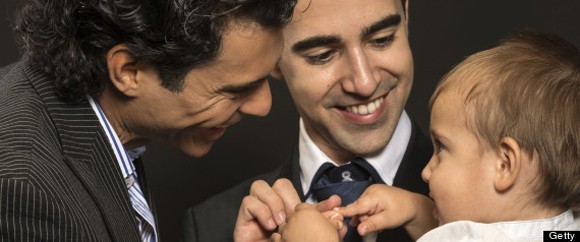SOME advocates against marriage equality have controversially compared marriage equality with the Stolen Generations.
Their case is that children are best reared by their biological parents, and the state has an interest in promoting so-called “biological inheritance” by restricting marriage to male-female unions.
The obvious response to the assertion that marriage is all about procreation is that the Marriage Act fails to stipulate that couples must be willing or able to have children.
We allow heterosexual couples to marry if they are infertile or past child-bearing age, so it is a double standard to deny same-sex couples the chance to marry because they cannot “naturally procreate”.
If the state’s primary purpose in legislating for marriage is to promote mum-dad families, it is being very coy and ineffective about it.
But putting the law to one side, there remains a strong cultural link between marriage and children. We can see this link in the fact many de facto partners still marry in preparation for having kids.
We can see it in how couples who aren’t happily married still tend to stay together “for the sake of the kids”.
But the link between marriage and children is not about the ability to procreate or “biological inheritance” and it is not a reason to oppose same-sex marriage.
The real link is that marriage promotes stable, enduring relationships which, in turn, provide children with a stronger sense of stability, security and continuity.
Whereas “procreation” cannot be found in the Marriage Act, stability in relationships is named as the institution’s defining feature.
The act explicitly defines marriage as a lifelong, exclusive union.
Traditional wedding vows define marriage as a union “for better, for worse, for richer, for poorer, in sickness and in health”. Same-sex couples are able to make and keep these vows just as well as their heterosexual counterparts.
The children of same-sex couples benefit from the stability and continuity marriage provides just as much as other children.
If the state has a declared interest in legislating for marriage it is in promoting the kind of stability in relationships that has the flow-on effect of benefiting children.
If there is a link between marriage and children, that link is an argument for allowing same-sex couples to wed, not against.
At this point opponents of marriage equality raise a number of studies, including a controversial paper by US researcher Mark Regnerus, which they say show children of same-sex couples have poorer than average outcomes.
But a careful reading of these studies shows nothing of the kind.
They compare children reared by their married biological parents with children from what used to be called “broken homes”.
As the researchers themselves acknowledge, the poorer outcomes of children in the latter group reflect a disruption in upbringing, not a loss of contact with “biological heritage”, and certainly not the influence of having same-sex parents.
When researchers have compared the outcomes of children reared continuously from birth in a mum-dad family to those reared continuously by same-sex couples, they are the same.
Research in countries that have achieved marriage equality has found that children of same-sex couples benefit when their families are affirmed equally through the law.
But the ultimate answer to the question “is gay marriage good for kids?” cannot be found in science journals or the Marriage Act. It is to be found in the fact tens of thousands of Australian children are already being reared by same-sex couples.
No one is suggesting we break up these families and remove the children to “better homes”. Indeed, the trend in state and federal law is to recognise and protect these families.
In these circumstances the choice for legislators is clear.
Either they allow the children of same-sex couples the benefit of having married parents, or they continue to demean these children’s families as second-rate.
For legislators who genuinely value marriage, family and the best interests of children, the choice should be obvious: for the sake of the children being reared by same-sex couples, their parents should be allowed to marry.
Rodney Croome AM is the national director of Australian Marriage Equality.
Author: Rodney Croome
Publication: The Australian
Publication Date: May 30 2013

